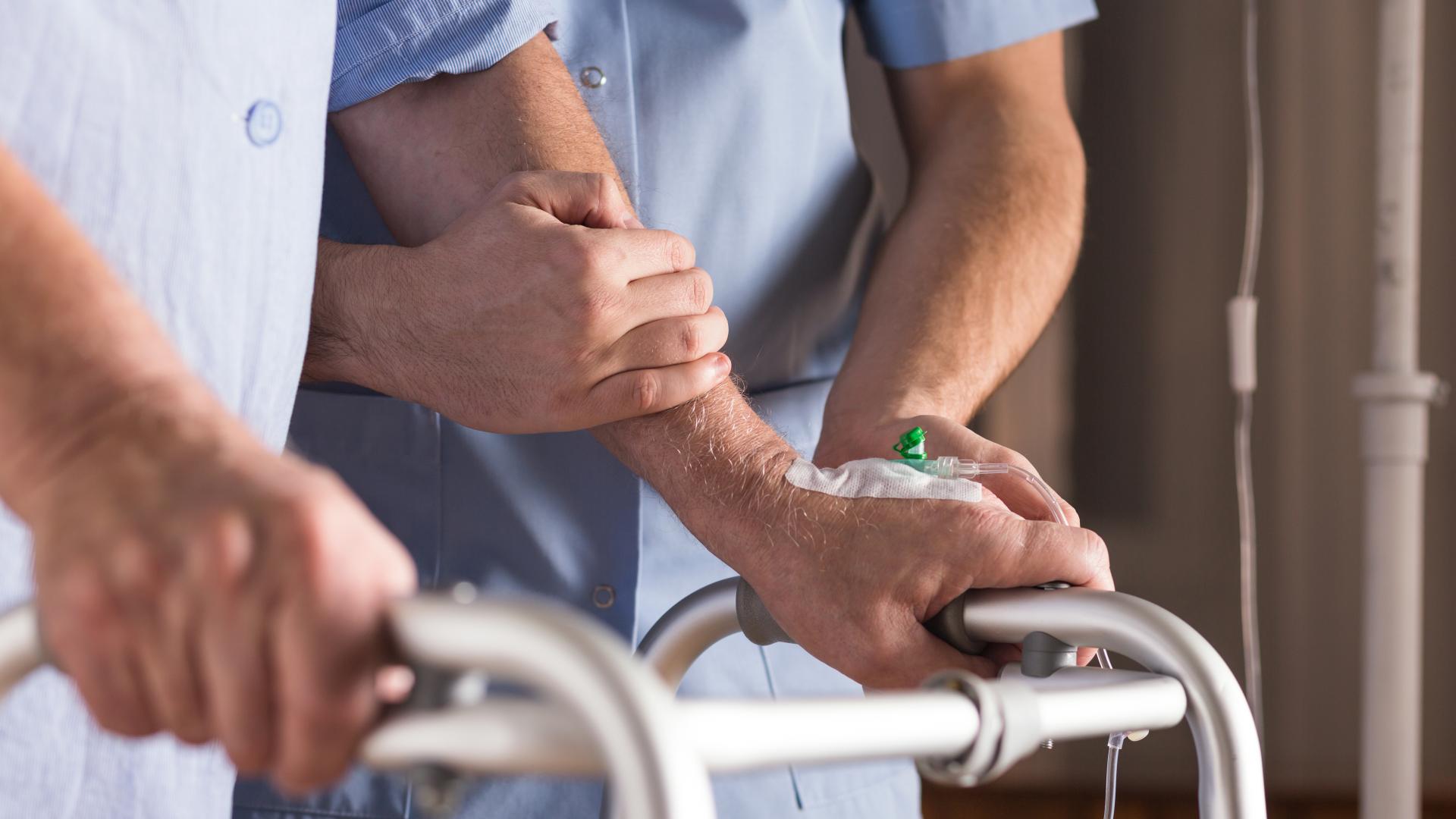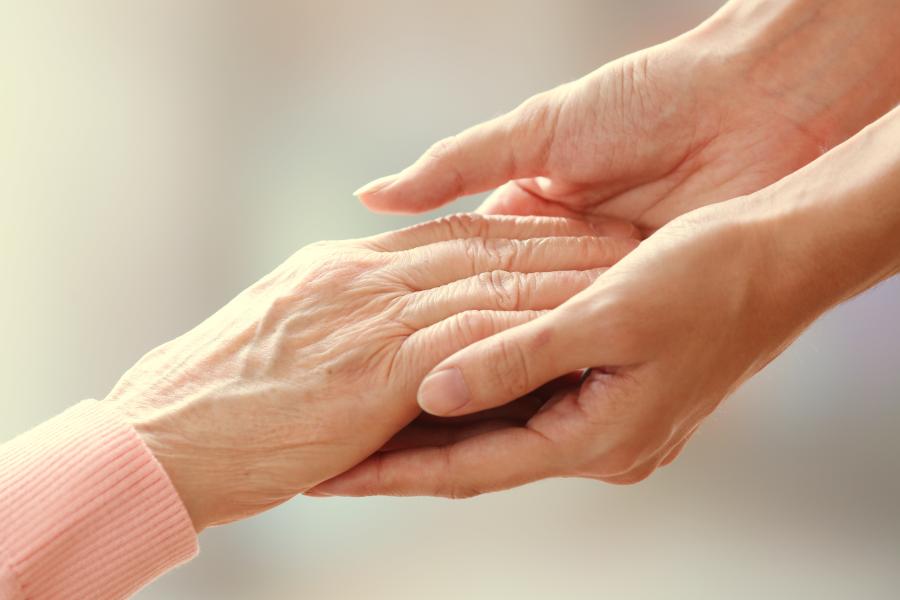About This Course
The course emphasises the social experiences of health and care and the management of services and how this provision is influenced by society, the economy, political and ethical factors. You’ll develop a detailed understanding of key contemporary issues shaping our health and our society and therefore the well-being of individuals and their communities. This course is perfect for anyone with an interest in playing a proactive role in improving the care given to vulnerable members of society.
The BA (Hons) Health and Social Care degree will provide you with an in-depth understanding of health and social care theory and practice, and help you to gain the skills necessary to improve the lives of those who rely on the health and social care system. Health and social care continues to be a growing sector and as people live longer and the ways people interact with services evolves new exciting opportunities exist to make a real difference to people’s lives.
In line with today’s fast-changing care sector, the emphasis during this course will be on the social experiences of health and care and the practical delivery and management of services. You’ll learn how the provision and delivery of these services is influenced by technology, society and the economy as well as by political and ethical factors across a variety of different health and social care systems giving you a global perspective. You’ll also develop the critical and analytical skills that underpin evidence-based practice, preparing you for a fulfilling career in the sector, either in the UK or elsewhere.
Why choose Bangor for this course?
- Leads to careers in areas such as health services management, research, health promotion and social and community work as well as an alternative route into healthcare professions such as Nursing.
- New, modern course content focuses on the key contemporary issues.
- Flexible degree structure offers a range of specialisms that enables you to tailor your degree to your needs and interests.
Additional Course Options
This course is available with a Placement Year option where you will study for 1 additional year. The Placement Year is undertaken at the end of the second year and students are away for the whole of the academic year.
The Placement Year provides you with a fantastic opportunity to broaden your horizons and develop valuable skills and contacts through working with a self-sourced organisation relevant to your degree subject. The minimum period in placement (at one or more locations) is seven calendar months; more usually you would spend 10-12 months with a placement provider. You would normally start sometime in the period June to September of your second year and finish between June and September the following year. Placements can be UK-based or overseas and you will work with staff to plan and finalise the placement arrangements.
You will be expected to find and arrange a suitable placement to complement your degree and will be fully supported throughout by a dedicated member of staff at your academic School and the University’s Careers and Employability Services.
You will have the opportunity to fully consider this option when you have started your course at Bangor and can make an application for a transfer onto this pathway at the appropriate time. Read more about the work experience opportunities that may be available to you or, if you have any questions, please get in touch.
This course is available with an International Experience Year option where you will study or work abroad for 1 additional year. You will have ‘with International Experience’ added to your degree title on graduating.
Studying abroad is a great opportunity to see a different way of life, learn about new cultures and broaden your horizons. With international experience of this kind, you’ll really improve your career prospects. There are a wide variety of destinations and partner universities to choose from. If you plan to study in a country where English is not spoken natively, there may be language courses available for you at Bangor and in your host university to improve your language skills.
You will have the opportunity to fully consider this option at any time during your degree at Bangor and make your application. If you have any questions in the meantime, please get in touch.
Read more about the International Experience Year programme and see the studying or working abroad options on the Student Exchanges section of our website.
Course Content
The course will be taught via lectures, seminars, small group work, presentations and computer-based independent learning. During the course you’ll have, on average, 6 hours of lectures per week and up to 6 hours of group seminars. Throughout the degree, you’ll have one-to-one support from academic staff.
We use a variety of assessment methods, including coursework and examinations. Some modules are wholly assessed by coursework. You’ll also work independently (with supervision) on an extended piece of written work, your dissertation, which will involve research in the area of your choice. Some modules offered as part of the course will be available through the medium of Welsh.
What will you study on this course?
This degree combines academic rigour with practical experience. During Year 1, the core modules of the course provide an introduction to the key concepts, historical background and contemporary issues relating to health and social care, as well as an introduction to research and study skills. During Years 2 & 3, core and optional modules provide a thorough grounding in key theoretical perspectives, comparative studies in health and welfare policy, and research methodologies. During Year 3, you will complete your degree with a more detailed study of core subjects, and you will carry out a dissertation in the area of your choice. During the degree, you will also have the opportunity to test your new knowledge and skills in a two-semester work placement in your second year.
Modules for the current academic year
Module listings are for guide purposes only and are subject to change. Find out what our students are currently studying on the Health and Social Care BA (Hons) Modules page.
Course content is for guidance purposes only and may be subject to change.
Facilities
The programme retains strong links with the health and social care sector across north Wales and students are able to benefit from sessions delivered by guest speakers from a wide variety of disciplines. In addition to providing a rich learning experience, these sessions also provide insight into potential future careers and excellent networking opportunities.
General University Facilities
Library and Archive Services
Our four libraries provide a range of attractive study environments including collaborative work areas, meeting rooms and silent study spaces.
We have an extensive collection of books and journals and many of the journals are available online in full-text format.
We house one of the largest university-based archives not only in Wales, but also the UK. Allied to the Archives is the Special Collections of rare printed books.
Learning Resources
There is a range of learning resources available, supported by experienced staff, to help you in your studies.
The University’s IT Services provides computing, media and reprographics facilities and services including:
- Over 1,150 computers for students, with some PC rooms open 24 hours a day
- Blackboard, a commercial Virtual Learning Environment, that makes learning materials available on-line.
Course Costs
General University Costs
Home (UK) students
- The cost of a full-time undergraduate course is £9,000 per year (2021/22 entry and 2022/23 entry).
- The fee for all placement, international, and sandwich years is £1,350 (2021/22 and 2022/23).
- More information on fees and finance for Home (UK) students.
International (including EU) students
Additional Costs
There are also some common additional costs that are likely to arise for students on all courses, for example:
- If you choose to study abroad or take the International Experience Year as part of your course.
- If you attend your Graduation Ceremony, there will be a cost for gown hire (£25-£75) and cost for additional guest tickets (c.£12 each).
Course-specific additional costs
Depending on the course you are studying, there may be additional course-specific costs that you will be required to meet. These fall into three categories:
- Mandatory Costs: these are related to a particular core or compulsory module that you’ll be required to complete to achieve your qualification e.g. compulsory field trips, uniforms for students on placement, DBS Check.
- Necessarily Incurred Costs: these may not be experienced by all students, and will vary depending on the course e.g. professional body membership, travel to placements, specialist software, personal safety equipment.
- Optional Costs: these depend on your choice of modules or activity and they are shown to give you an indication of the optional costs that may arise to make sure your choice is as informed as possible. These can include graduation events for your course, optional field trips, Welcome Week trips.
Entry Requirements
Offers are tariff based, 80 - 96 tariff points from a Level 3 qualification* e.g.:
- A Levels: General Studies and Key Skills not accepted.
- BTEC National Extended Diploma: MMP - MMM
- Cambridge Technical Extended Diploma: MMP - MMM
- International Baccalaureate Diploma: accepted
- Access to Higher Education Diploma: accepted, pass required
- Extended Project: Points can include a relevant Extended Project (EPQ) but must include a minimum 2 full A-levels, or equivalent.
- T-Levels: case by case
- Welsh Baccalaureate.
- Irish Leaving Certificate: 80- 96 points from a minimum of 4 Higher Subjects
We are happy to accept combinations of the qualifications listed above, as well as alternative Level 3 qualifications such as City & Guilds, and NCFE CACHE Level 3 Extended Diploma.
We also welcome applications from mature learners.
We also welcome applications from mature learners.
International Candidates: International Candidates: school leaving qualifications that are equivalent to A levels/Level 3 and/or college diplomas are accepted from countries worldwide (subject to minimum English Language requirements). More information can be found on our International pages.
*For a full list of accepted Level 3 qualifications, go to www.ucas.com.
General University Requirements
To study for a degree, you’ll be asked for a minimum of UCAS Tariff points. For a fuller explanation of the UCAS Tariff Points, please see www.ucas.com.
We accept students with a wide range of qualifications and backgrounds and consider each application individually.
All students need to have good basic skills and the University also values IT and communication skills.
As part of the University’s policy, we consider applications from prospective disabled students on the same grounds as all other students.
We also consider applications from mature students who can demonstrate the motivation and commitment to study a university programme. Each year we enrol a significant number of mature students. For more information about studying as a mature student, see our Studying at Bangor section of the website.
EU and International Students' Entry Requirements
For detailed guidance on the entry requirements for EU and International Students, including the minimum English Language entry requirement, please visit the Entry Requirements by Country pages. International applicants can also visit the International Education Centre section of our website for further details.
Bangor University offers International Incorporated Bachelor Degrees for International students whose High School qualification is not equivalent to the UK school leaving qualification. The first year (or Year 0) is studied at Bangor University International College, an embedded College on our University campus and delivered by Oxford International Education Group.
Careers
Health and Social Care is a very diverse field that will open up many opportunities for your future. Many BA (Hons) Health and Social Care graduates now work in the NHS, different charities such as MIND, social care organisations and other public, private and voluntary sector agencies. Recent graduates have been able to find work in local councils, as housing officers, working with vulnerable families or with refugees. Others work in charities, helping those with mental health issues or addictions.
This course will also help you start or progress to a career in professions such as nursing, social work or occupational therapy. For those who want to continue their academic studies, some graduates also choose to pursue taught Masters courses, or research degrees.
Opportunities at Bangor
The University’s Careers and Employability Service provides a wide range of resources to help you achieve your graduate ambitions.
The Bangor Employability Award (BEA)
The BEA is a comprehensive online course that you can work through at your own pace, taking you through all the steps you need to take to explore, prepare and apply for your dream career.
Internships
Bangor University runs a paid internship scheme within the university’s academic and service departments.
Student Volunteering
Volunteering widens your experience and improves your employability. Find out more about volunteering on the Students’ Union’s website.





